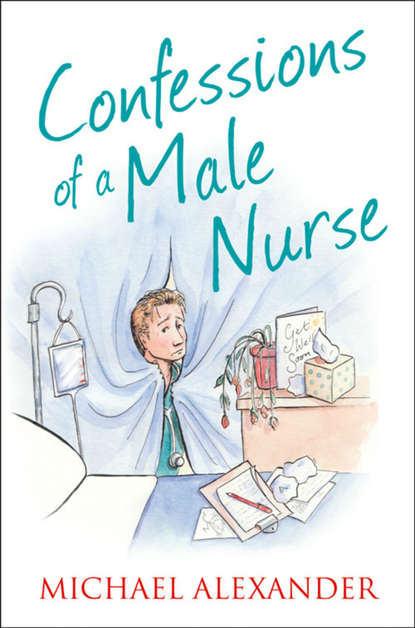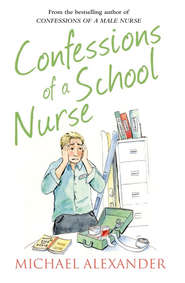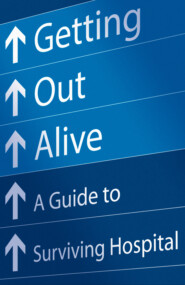По всем вопросам обращайтесь на: info@litportal.ru
(©) 2003-2024.
✖
Confessions of a Male Nurse
Настройки чтения
Размер шрифта
Высота строк
Поля
‘Could you get us another cup of tea when you’re finished down there? Oh, and some biscuits as well?’
‘Yeah, just give me a moment, I should be finished soon,’ I replied. As I tried to pry apart his rotten toes, the thought of food didn’t seem quite right.
Mr Mannering chose this moment to inquire after his feet.
‘So how’s it looking down there?’ he asked, almost nonchalantly, just as if he was asking about the weather.
‘It’s not looking good,’ I replied. ‘But at least it doesn’t look any worse.’
There was no point being overly optimistic or pessimistic in my response, because no matter what I said, he responded the same way:
‘Well, you seem to know what you’re doing. I’ll leave everything in your capable hands.’
The little toe was the hardest to dress: it was too small, so the dressing wouldn’t stay in place.
I tried to pull his toes apart, so I could have another attempt at slipping in the piece of gauze.
Then . . . oops.
I could feel bile building up in the back of my throat. Somehow I managed to stop myself from vomiting, but I couldn’t completely hide the sound of air being brutally forced up through my throat and out my mouth, as my stomach clenched.
‘Everything all right down there?’ Mr Mannering had lowered his newspaper and was looking me in the eye.
‘You look awfully pale,’ he added. ‘Are you feeling okay?’
How did I feel? His little toe was resting between my fingers. I’d pulled it off. On the bright side, at least he wasn’t bleeding, although the smell from the foul, yellow-green-black pus seeping from the stump was making my stomach lurch again.
‘Well come on lad, speak up.’
For the first time in the two weeks that I had been doing Mr Mannering’s dressings, I heard a note of concern in his voice. I thought of the words he had said a moment earlier: ‘I’ll leave everything in your capable hands.’ I don’t think he meant it quite so literally.
As I crouched at the end of the bed, unable to think of anything to say or do, I had a vision of holding up his toe and offering it to him.
‘We have a slight problem,’ I finally said. ‘But it’s nothing to worry about – really.’
Mr Mannering leant forward. ‘What’s wrong?’
‘It’s your toe; your little toe,’ I began to explain. ‘It’s come off.’
‘Come off, what do you mean come off? Toes don’t just fall off.’
He had a point, toes don’t generally fall off.
‘Well, I pulled a bit too much and it just, well, came away in my hand,’ I said.
Mr Mannering took a minute to collect his thoughts, while I was still kneeling at the end of the bed with his toe between my fingers.
As the silence grew, I tried to justify my actions in my head: It really isn’t my fault. His feet are rotten. He’s going to get them chopped off anyway; surely he realises this.
I looked at Mr Mannering’s face to try to gauge his reaction. Then I heard a strange sound. It couldn’t be . . . but it was. Mr Mannering was laughing – a deep, throaty, contagious laugh. I found myself joining in.
‘They’re going to chop it off anyway, lad. You’ve just made their job a bit easier,’ he said to me.
‘Ever thought of being a surgeon?’ he added and broke into another round of laughter, as if this were a great joke.
‘Well, what do you want me to do with it?’ I asked – the discussion finally coming around to practicalities.
‘Well, I don’t want it,’ he said. ‘Throw it in the rubbish.’
It didn’t seem quite right throwing it in the bin – after all, it was a body part – but then again, a pretty gross part, so in it went.
Two days later, Mr Mannering went to surgery and had not just his toes, or even his foot, amputated, but his leg from just below the knee.
Mr Mannering had been the first male patient I had worked with as a registered nurse, and it was as if I had seen a light of hope at the end of a long tunnel. I found myself not only comfortable working with Mr Mannering, but actually enjoying it. This was just as well, because my time in the gynaecology ward was nearly up. I had received word from management that, as part of the graduate programme, I was to be rotated to a general surgical and medical ward. I just had to survive one more week.
II (#ulink_4406ecae-2bb8-5e10-8646-555156d591e3)
A glimmer of hope (#ulink_67add8db-2e94-54de-b24f-fb1a0456ecb9)
Six months after graduation, I was moved to Ward 13. I knew from the very start that it was going to be challenging, but hopefully in a good way. It was a small hospital and space was at a premium. The ward had surgical patients, medical patients, and urology patients.
The surgical cases often involved abdominal and vascular surgery, as well as urology surgery, which is anything to do with the kidneys and their associated plumbing. While the medical patients were a mix of everything. It was only in the years to come that I would learn that this set-up was not very common (although it happened often enough because of a shortage of bed space). It was certainly not ideal, but one huge benefit of the situation for me was that I gained a whole lot of experience in a relatively short space of time. I began to see things truly from the perspective of a caregiver.
Who’s to blame? (#ulink_7ac3cc71-75ae-5bd6-8197-da48f2becebd)
Horrendous, horrible things sometimes happen in my line of work. Things that make hospitals seem like a living nightmare. But good can come out of even the worst experiences, even if it is just a new way of looking at something – sometimes, perception is everything.
Interpretations of a situation can vary tremendously, especially when it comes to a patient’s perspective versus that of a nurse. It’s to be expected that the nursing staff will have a better understanding of health and illness and how the body deals with sickness. What is not always appreciated is a patient’s understanding, or lack thereof, of a particular problem.
‘Get ya hands off it; I don’t want ya breaking anything.’
I put Mr Kent’s leg back in the corner. It wasn’t a whole leg – just the lower part of his right leg.
‘I’ve been living without a leg since before you were born and I don’t need your help now.’
Mr Kent had lost his leg in a motorbike accident when he was 25. He had never married, always lived alone and never had to depend on anybody for anything – well, apart from the prosthesis manufacturer.
I was just trying to help him strap the thing on – speed things up a bit because he was taking so long to get ready. I know it sounds terribly impatient of me, but he looked helpless as he groped for his walking stick while struggling to sit up in bed.
Once Mr Kent had his leg strapped on and was on his feet he was a different person. He was mobile and, if not exactly nimble, he could move pretty quickly.
‘I don’t need to be here, it will pass,’ he kept saying.
And every time, I responded the same way: ‘It’s just a precaution, the doctors know what they’re doing; you’ll probably be home in no time at all.’
Mr Kent was a very strong willed man. He was so fiercely protective of his independence that he would not let any of the nurses help him in any way. The closest he had come to asking for assistance, was pointing his walking stick at the television and saying, ‘Be a good lad will you and change the channel for me.’
But for all his tough demeanour, I suspected he was more worried than he let on.











